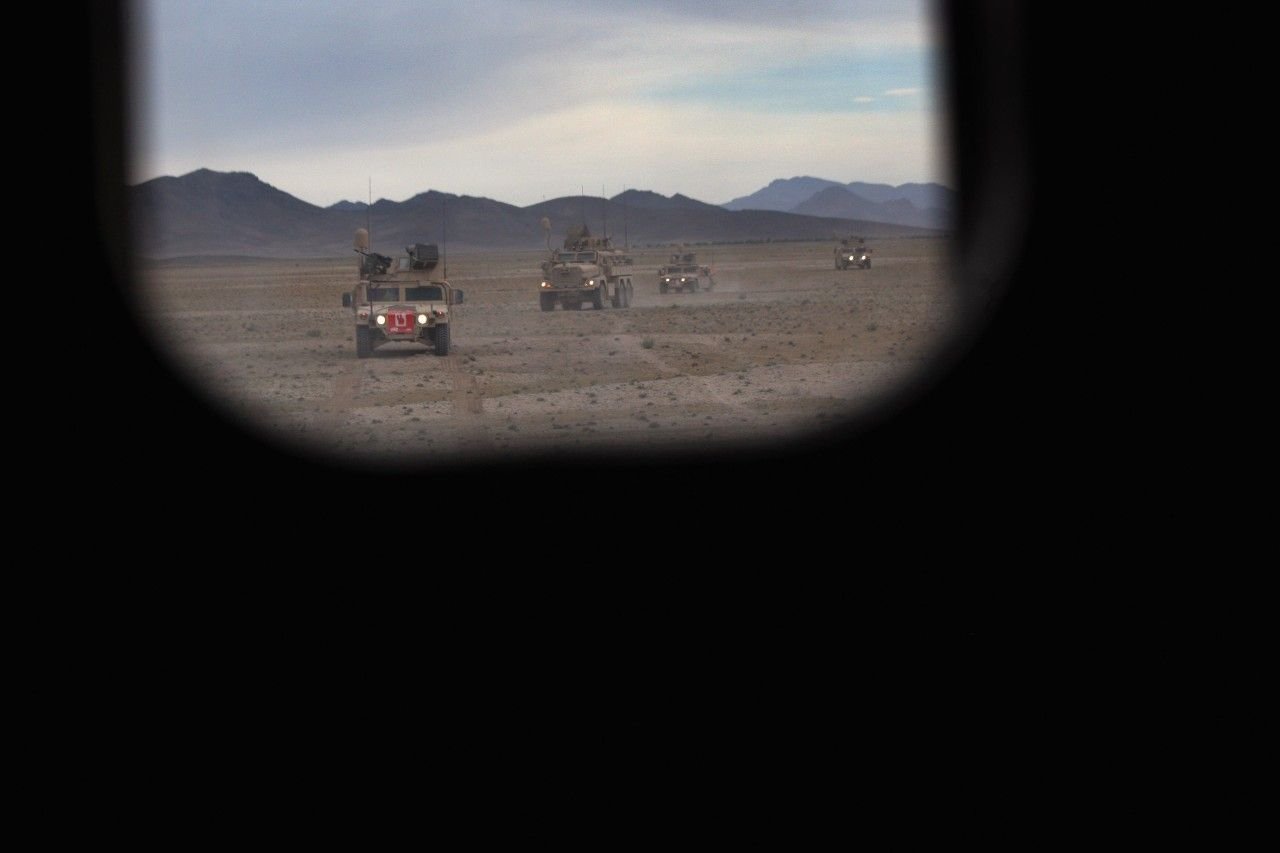It's not often that a top administration official dumps on the president and vice president on his way out of town and a thousand government workers show up to get his autograph. But so it went in Washington in mid-January, when erstwhile Defense Secretary Robert Gates came to the Pentagon to sign copies of his blistering account of his time in the Obama administration: Duty: Memoir of a Secretary at War.
One of SecDef's big themes is "speaking truth to power." One Marine who showed up was looking for a little clarification on that concept.
With his plastic-frame glasses, balding head and department store tie, Franz Gayl looks no different from the tens of thousands of other mid-level federal workers who ply Washington's national security bureaucracies. But Gayl was a Marine to the core. He loved the Marines so much he signed up twice, first as an enlisted man and then, after a few years on the outside, as an officer. After retiring as a major, he stayed on as a civilian specialist in battlefield science and technology issues. That's what took him to Iraq in 2006 - and to Gates's book signing last month.
Gayl had serious issues with Gates's account of one of the war's darkest chapters, the Pentagon's unconscionable delay in getting mine-resistant vehicles to young troops being shredded daily by insurgent land mines. In his memoir, Gates depicted himself as virtually single-handedly stampeding the military services into expediting the acquisition and delivery of the so-called MRAPs (for Mine-Resistant Ambush-Protected vehicles) to replace the troops' thin-skinned, deathtrap Humvees. "To my chagrin, not a single senior official, civilian or military, supported my proposal for a crash program to buy thousands of these vehicles," Gates wrote of a May 2, 2007 meeting. "Despite the lack of support, the same day I issued a directive that made the MRAP program the highest-priority Department of Defense acquisition program...."
In fact, the Marines in Iraq had been begging for the life-and-limb-saving MRAPs since 2005, Gayl discovered there, but bureaucrats at Marines headquarters in Quantico, Va. - some, perhaps, with an eye on future employment with contractors developing competing vehicles - had buried their request. And it wasn't Gates who first clambered to rescue the beleaguered troops - but none other than Joseph Biden, the Democratic senator from Delaware at the time.
In Duty, Gates had brushed off Biden as "wrong on nearly every major foreign policy and national security issue over the past four decades" - a line that had le tout Washington snickering for days after its publication. But according to Gayl - and the Congressional Record - it was Biden and Senator Christopher "Kit" Bond, R-Mo., who "worked directly (with Marine combat veterans) to pressure Gates to move faster on MRAP." This, Gates fleetingly notes elsewhere in his memoir, came two years after he read about the MRAP option in USA Today.
"Early on, Biden wrote President George W. Bush to express concern about the 2005 failed response," Gayl recalled recently in Defense News, a closely read Beltway publication. "Biden and Bond also wrote Gates, citing a study attributing hundreds of preventable deaths to the failed service response to that request." It was their appropriations bills that put the MRAPs in the express lane. By 2011, "the military estimated that MRAPs had saved the lives of as many as 40,000 service members" in Iraq and Afghanistan, according to USA Today's Tom Vanden Brook, who led the way in reporting on the issue.
Gayl had been a primary source for Vanden Brook (and Congress) after hitting the Pentagon's wall of obstruction and silence. As a result, he was dispatched to Washington's version of purgatory - stripped of his security clearance, which made him expendable. Indeed, the brass also moved to suspend him indefinitely without pay - until a whistleblower support organization, the Government Accountability Project, ambushed the corps at the pass. Although he's supposedly back on the job now with his security clearance restored, the Marines won't let the weapons whiz back into the classified room where the work is done.
Gayl and the Marines were supposed to have a mediation session several days ago, but the corps missed the date. He may have to sue.
Why, one might ask, would the Marines punish one of their own, whose mission was to save the lives of their own? After all, as his lawyer, Tom Devine, tells Newsweek, "His orders were to cut through the red tape and get those MRAP's delivered, before more of our boys get slaughtered. Gayl acted as a soldier serving the field general whose top priority was safety of the troops, not the procurement generals whose top priority was relationships with contractors."
Procurement? Contractors? As it turns out, the MRAP was developed by South Africa, not one of the hardy Pentagon contractors who constantly provide soft landings for retiring generals. And guess where two of the top Marine generals who resisted the MRAP deployments are today?
Former Marine Corps commandant James T. Conway, who tried (and failed) to cut the acquisition of MRAPS by over a third in 2007, now sits on the board of Textron, which joined with Boeing that same year to develop a competitor to the MRAP. Retired Marine Corps general James N. Mattis, who commanded the Marine Corps Combat Development Command when it deep-sixed the troops' desperate request for MRAPS for 19 months during 2005 and 2006, now sits on the board of General Dynamics, producer of another competing vehicle. One can only guess where Mattis' successor at the MCCDC, Gen. James F. Amos, who has overseen the Gayl case as the current Marine Corps Commandant, will land. (Conway did not respond to a request for comment; Mattis declined to comment.)
This is the Washington merry-go-round, of course, no matter who controls the White House or Congress. According to the reform group Citizens for Responsibility and Ethics in Washington, "70 percent of the 108 three- and four-star generals and admirals who retired between 2009 and 2011 took jobs with defense contractors or consultants. In at least a few cases, these retirees have continued to advise the Department of Defense - all while on the payroll of the defense industry."
The group names them all in a report, while the ever-affable Gates can't bring himself to name names while weeping at the cedars over the MRAPS. "As usual in a huge bureaucracy," he sighs in print, "the villains were the largely nameless and faceless people - and their leaders - who were wed to their old plans, programs and thinking and refused to change their ways regardless of circumstances."
Nameless and faceless? Gayl planned to take issue with Gates on that, as well as the contribution of others like himself in getting the MRAPs rolling - who go unmentioned in his memoir - at his Pentagon book signing.
Alas, when he finally got a chance to step up and introduce himself, the SecDef "brushed him aside," Devine said.
Jeff Stein is a Newsweek contributing editor in Washington D.C.


























